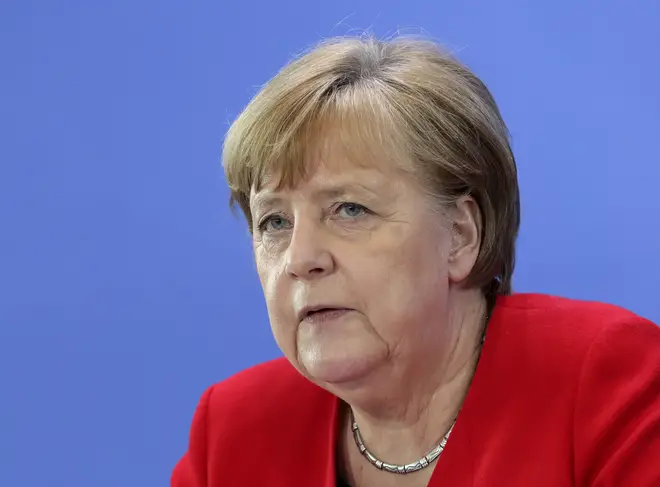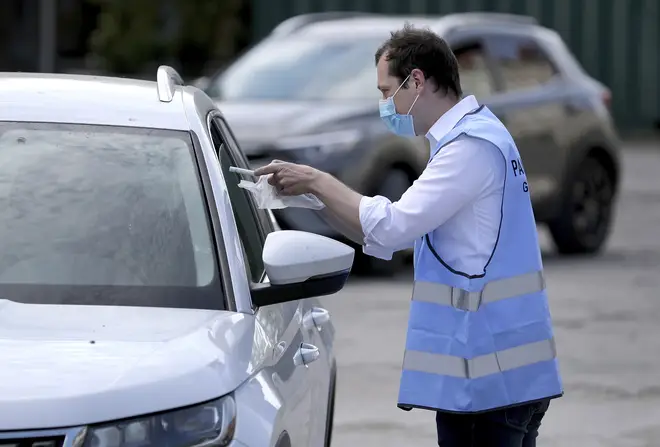
Simon Marks 3pm - 7pm
6 May 2020, 20:25

Germany is planning to ease its coronavirus lockdown to allow the reopening of shops, meet ups between two households and to restart football matches.
Chancellor Angela Merkel made the announcement on Wednesday, saying the first phase had passed but that a long road is still up ahead.
In the next phase of the country's coronavirus response, groups of people from two separate households will be allowed to meet up.
Schools will gradually reopen in the summer term.
Shops will also be allowed to reopen with additional hygiene and social distancing measures in place. Mouth and nose coverings will also be required on public transport.
Bundesliga football matches will be held towards the end of May.
Mrs Merkel told Germany: "We are following a bold path. We can afford to be a bit bold but we must remain cautious," and the country will operate an "emergency brake" if there is a new surge in infections.

Listen & subscribe: Global Player | Apple Podcasts | Google Podcasts | Spotify
In a statement released after the announcement, Christian Seifert said: "Games without stadium spectators are not an ideal solution for anyone. In a crisis threatening the very existence of some clubs, however, it is the only way to keep the leagues in their current form.
"On this day, I would like to thank the political decision-makers from the federal and state governments for their trust."
The German football league will discuss dates for the planned relaunch of the Bundesliga later this week. Matches are explicated to be played without fans in attendance.
Germany has recorded 167,239 cases of COVID-19 and 6,993 deaths.
The nation began easing of restrictions in mid-April and allowed smaller shops to reopen.

Elsewhere in Europe, in Italy hundreds of Milan bar and restaurant owners have placed an empty chair from their establishments in front of the Arco della Pace triumphal arch in a protest demanding fiscal measures to help during the lockdown.
Restaurants and bars will open for sit-down clients on June 1, and organisers say as many as 2,000 of the 7,000 establishments in the city may not survive that long. They are asking to have taxes lowered so they can survive the lack of revenue since restrictions were put in place on February 24. They are also expecting a 70% revenue drop after opening due to spacing requirements.
Andrea Linguanti, the owner of four restaurants in the trendy Navigli district, said he had received little aid from the government and has not heard back after applying for bank loans.
None of his 48 employees had received short-term unemployment promised by the government, he added.
Spanish prime minster Pedro Sanchez has said his government will declare a national period of mourning for the more than 25,800 deaths the European nation has suffered from the coronavirus pandemic.
Mr Sanchez is appearing before Spain's parliament on Wednesday to ask for a fourth two-week extension of the state of emergency that has allowed his government to apply a strict lockdown that has reined in a savage Covid-19 outbreak. It appears he will have the support despite losing the backing of the main opposition party.
Spanish health authorities reported 244 new deaths over the previous 24 hours on Wednesday, taking the toll of virus deaths to 25,857.
The figures, which are in line with the overall slowdown of the outbreak in Spain, do not include thousands more who have died in nursing homes before they could be tested.
Spain also reported that its total number of confirmed infections has surpassed 253,000.
In the Czech Republic, a comprehensive study to determine undetected infections in the population has revealed a low number of Covid-19 cases.
Health minister Adam Vojtech said 26,549 people were tested across the country, including the capital, with 107 previously undetected positive tests.
The study was conducted in different parts of the Czech Republic where the epidemic was at different stages on people aged 18-89. In the capital of Prague and the second largest city of Brno, children also were included.
The samples included volunteers as well as selected groups such as those suffering from chronic diseases.